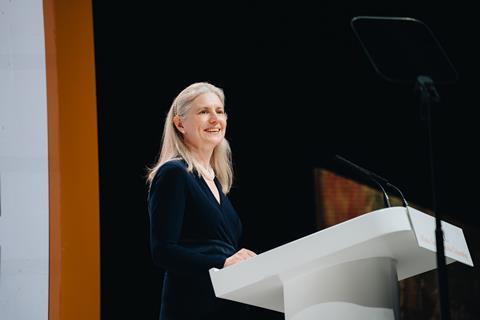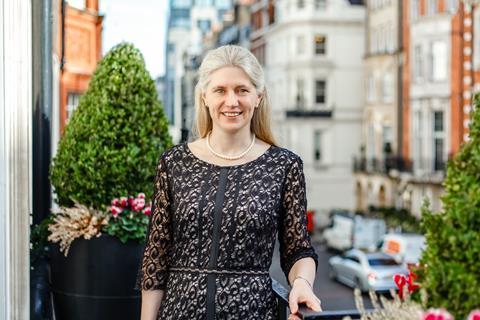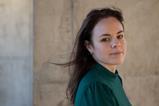Baroness Philippa Stroud, conservative peer, church leader, founder of the Centre for Social Justice and currently the chief executive of the Alliance for Responsible Citizenship (ARC) spoke with Liberal Democrat MP Tim Farron, for the ‘A Mucky Business’ podcast

Tim Farron (TF): Tell us how you came to call yourself a Christian?
Philippa Stroud (PS): When I look back at my life and my faith journey, I think it’s true to say I always knew that there was a God, but I wasn’t in a family that went to church. That always puzzled me; I couldn’t quite understand why some people did, and some people didn’t. But I was fortunate enough to be at a school where my closest friend was a Christian. All the way through my teens, I watched how she lived. I couldn’t understand why she had this remarkable sense of peace. I would go off and have these wonderful summer holidays, but I would get back in September and look at her and she was just so peaceful, while I wasn’t. It really catalysed a genuine search for truth and faith, which led me to becoming a Christian when I was 17.
TF: What did that mean, for you? Did it influence choices that you made that shaped the career path you had?
PS: I think one of the reasons why it took such a long time for me to take that step of faith was because I was acutely aware of passages like: “go, sell your possessions and give to the poor, and you will have treasure in heaven. Then come, follow me” (Matthew 19:21), which count the cost of the confession of faith. These were not things that I took lightly. So when I finally took that step of saying: “Yes, this is something I believe in”, I knew that it was putting me on a different path. I had always thought that I would go into international banking. My friends laugh at me when I tell them that now. I spent time during university in the City, in merchant banks doing work experience, as it took a few years before I realised that the path I’d chosen was actually taking me on a completely different path. So when I came out of university, that was my moment to really choose which direction I was going to go in. I ended up going to Hong Kong to work with drug addicts.
TF: From there, you found yourself involved in politics; what drew you to the Conservative Party and to political activism?
PS: After Hong Kong I decided to engage in frontline work, assisting one addict at a time or working in buildings housing alcoholics, where I could really see people’s lives utterly transformed. After 17 years of doing that, I began to think national policymaking isn’t helping these people. So I thought: “How could you get ahead of this? How could you start?” And that was the transition point for me, as I realised if I could take what I’d learned at a local level, and bring it up onto a national level, that would be a good contribution to make. I helped co-found the Centre for Social Justice with Sir Iain Duncan Smith, and that, in effect, was the catalyst for transition.
TF: What was the initial purpose for the Centre for Social Justice?
‘Social justice must be at the heart of British politics’
PS: The purpose was to put social justice at the heart of British politics. To be that constant reminder, to think about and incorporate into policymaking the most vulnerable in our nation. It was to look at how you reverse the levers of social breakdown, and how you build it from a government perspective, but also using every lever at your disposal. How do you reverse the breakdown in our nation that we’re witnessing, especially by focusing on family breakdown, education—where there can be an opportunity for people to reset their lives—mental health, debt, and welfare dependency?
TF: How do we in politics have any influence over whether families are strong or otherwise?
PS: One of the big conversations I had with civil servants, when I was in government for six years, was about the argument that government shouldn’t get involved in family policy. But when you actually look at it, government is already involved in family policy in a very significant way. Much of our family policy is actually part of the problem. When you incentivise people with more money to live apart than to live together through the welfare state, that is problematic. I remember having huge debates with officials about the role of marriage, for example, within government policy, and whether or not it can be supported. I think in the end, the most that they were prepared to accept was that it was good for a child to live with both of its birth parents. But obviously, the most stable way of doing that is through a marriage relationship. All the statistics bear that out. If people are wanting the best outcomes for their families, what choices can we support them with?

TF: How long have you been a member of the House of Lords?
PS: Nearly seven years.
TF: And you spent some of that time in government roles. Tell me a little bit about those.
PS: I was in government between 2010 and 2015. I was a special adviser to Sir Iain Duncan Smith on the wealth reform agenda. And then I also took a role in Number 10 advising David Cameron on issues of poverty. I don’t know whether you remember, but those days were fairly turbulent; we were in coalition together– Lib Dems and Conservatives. The welfare agenda was one of the most hotly contested areas. So there was always a lot of friction between Number 10, the Treasury, with George Osborne, and with the DWP (Department of Work and Pensions). A lot of my role was keeping communication channels open, so that decision making flowed more easily, which was challenging at times. We were doing major reforms to the welfare state, at the same time as being in an age of austerity. I think that we’d never dreamed that what we had envisioned doing in those reforms would coincide with an austerity agenda. But you don’t choose the time that you’re in government.
TF: How did you go from being a special advisor to Member of the House of Lords?
Much of our family policy is actually part of the problem
PS: I can remember the day that David Cameron rang me and asked if I would be prepared to go into the House of Lords. I was just overwhelmed. I said yes, as for me, it was always to speak up on behalf of those who couldn’t speak for themselves. And that was what brought me into politics. It’s probably one of the reasons why I speak on issues of poverty, but also on the refugee agenda.
TF: I’m this lefty liberal, who still thinks that what the Bible says about personal morality is right. And you’re a conservative who sometimes goes against the flow on issues like asylum and refugees. So we jar with our own tribes sometimes – what has that been like for you?
PS: I suspect it’s slightly easier for me than it is for you in that there’s more grace for it in the Lords than in the Commons. I think all of us have to think about what are the things that are most important to us. There are lots of things that the government does that I’m really happy to support. But on the issue of refugees, I think the Bible is quite clear. Nearly every time the Bible talks about poverty, it also talks about refugees – the two seem to almost go hand in hand. My own father was an evacuee during the war to Canada. I look back at his story and I’m so profoundly grateful for it. My parents modelled to me taking care of the Ugandan Asians and Vietnamese boat people when they arrived. And I think we shouldn’t conflate issues like refugees, asylum seekers and immigration; we should have an honest debate about the differences between those different categories. I think one we are in control of, and the other requires us to have a compassionate response rather than a naive response.
If you only talk about decline and crisis, it becomes a self-fulfilling narrative
TF: In The Telegraph recently, it says you are the “Most powerful right wing politician that you’ve never heard of.” I strongly suspect that that relates to your current role as CEO of the Alliance for Responsible Citizenship, which had a high-profile conference relatively recently featuring the likes of Canadian philosopher and author, Jordan Peterson and others. Tell us a little bit about ARC, and what you think its future might be?
PS: ARC is the most wonderful alliance of people who have come together from all around the world, from Australia, Canada, the US, through to Europe and Africa, all saying there has to be a better story. We’re living in a time where the narrative is one of decline, permacrisis and polycrisis. Literally, you can watch any news and the word crisis is there repeatedly. We’ve seen the impact that that is having on people’s mental health and people’s sense of confidence in the future. And we have come together to say: is there a better story? As someone of faith, I profoundly believe that there is a better story. We build something hope-filled, that actually says to the next generation: there’s something worth having children for, there is something worth living for, there’s something worth being entrepreneurial for, there’s something worth building towards. And there is a good future that we can have together. But if you only talk about decline and crisis, it becomes a self-fulfilling narrative, and you end up seeing your economy go into decline, and people’s mental health go into decline. We had a conference of 1,500 people from 73 different nations of the world, coming together to say: “Yes, there’s a better story.”
Baroness Stroud was talking to Tim Farron, Liberal Democrat MP for Westmoreland and Lonsdale. Click on the QR code to listen to the full interview on ‘A Mucky Business’ podcast, available now on Premier Plus premier.plus/podcasts






























No comments yet